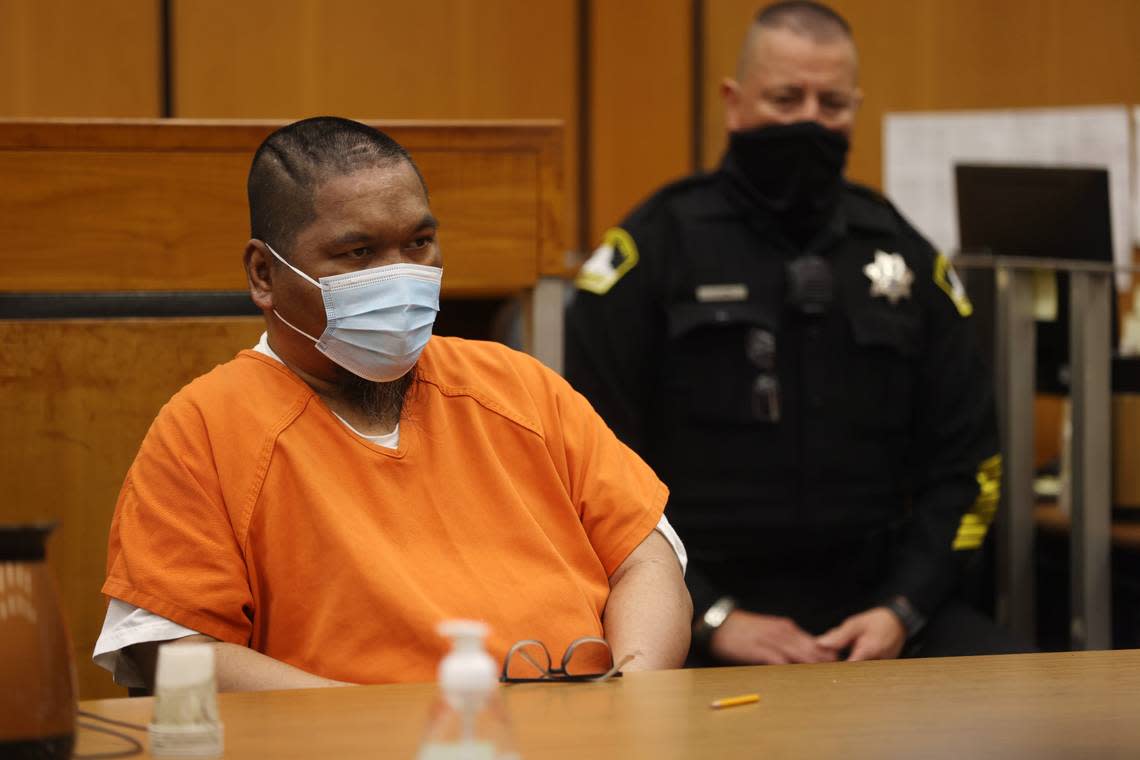Death penalty under question as trial starts in slaying of Sacramento Officer Tara O’Sullivan

Venerando Jojie Ramos, the brother of Sacramento police Officer Tara O’Sullivan’s accused killer, grabbed a fistful of tissues to wipe his teary eyes as he paused while testifying Monday about his father’s bloody death.
He began to describe how his brother, then-5-year-old Adel Sambrano Ramos, began to press on his father’s wounds to stem the blood gushing “everywhere” in their home in the Philippines.
The testimony came during a bench trial in which Adel Ramos’ defense attorneys seek to show their client suffered trauma and developed intellectual disabilities. Sacramento Superior Court Judge James Arguelles will then decide if Ramos has the mental capacity to be tried for the death penalty in O’Sullivan’s death.
Adel Ramos, now 50, has pleaded not guilty to 13 counts, including the murder of O’Sullivan and attempted murder of other police officers, in a June 2019 North Sacramento standoff.
O’Sullivan, a 26-year-old rookie officer who had graduated just six months earlier from the Sacramento Police Department Academy, was shot as she attempted to help Adel Ramos’ girlfriend, Megan Jansa, move out of her home on Redwood Avenue. O’Sullivan died from gunshot wounds at a hospital.
Supporters of O’Sullivan filled three rows in the gallery to watch Monday’s proceedings.
Defense attorneys Jan Karowsky and Pete Kmeto will call upon Adel Ramos’ family, friends and a psychologist during the bench trial scheduled to last until next week. On Monday, they called upon witnesses who testified about Adel Ramos’ abusive uncle and the defendant’s inability to follow directions.
Ramos’ family members said the defendant was “stupid” while growing up. He mostly kept to himself, testified Gregorio Ramos, a childhood friend.
But prosecutor Jeff Hightower, who will call upon investigators and his own expert psychologist, argued Adel Ramos has no mental issues. That’s proven in part by the highly complex methods Adel is accused of deploying during the eight-hour standoff with law enforcement in 2019, Hightower argued.
The defendant dropped out of ninth grade while attending school in the Philippines by choice, Hightower argued in his opening statements. He began working in his early teen years and eventually brought his brothers to the U.S. to escape an abusive uncle, Hightower said.
Adel Ramos worked at McDonald’s before eventually establishing a 17-year career in the construction industry as a skilled carpenter, Hightower said. He was never fired because of his intellectual abilities, he said.
A workplace injury ended Adel Ramos’ career, after which he supported his family by selling marijuana and assembling firearms, Hightower said.
His intellectual abilities also shined when he established numerous barriers around his home during the standoff with police, Hightower said. Adel Ramos had live surveillance footage of his entire home looped back to him, and guns and hundreds of bullets were stashed around his home before police arrived, authorities said.
He also modified guns to fire faster with more bullets, Hightower said.
“He is navigating this world perfectly,” Hightower said.

